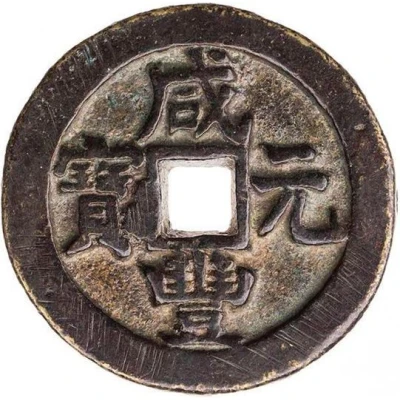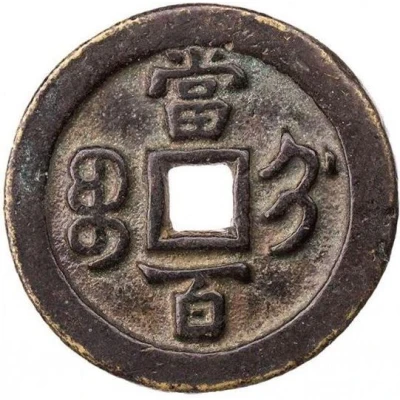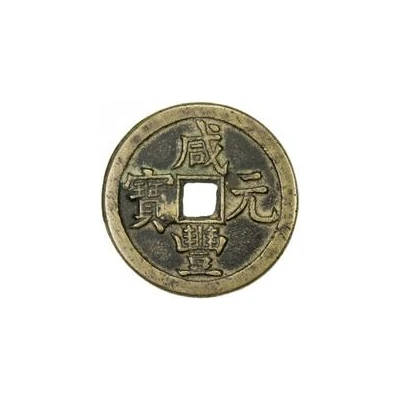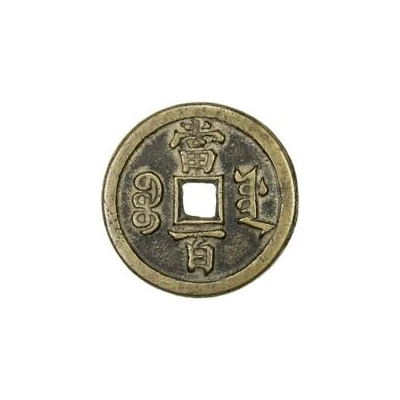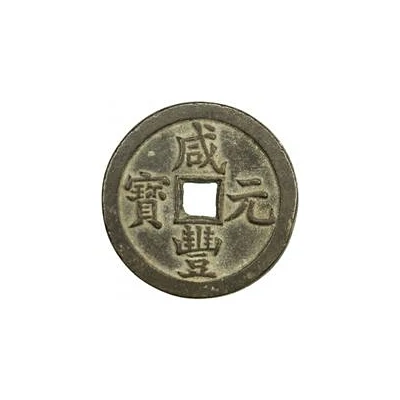
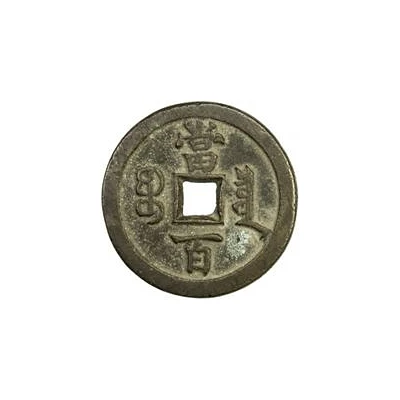

© Stephen Album Rare Coins
100 Cash - Xianfeng Yuanbao; Boo-chiowan ND
| Brass | 43.62 g | 49 mm |
| Issuer | Empire of China |
|---|---|
| Emperor | Qing dynasty › Xianfeng (咸豐帝) (1850-1861) |
| Type | Standard circulation coin |
| Years | 1854-1855 |
| Value | 100 Cash |
| Currency | Cash (621-1912) |
| Composition | Brass |
| Weight | 43.62 g |
| Diameter | 49 mm |
| Shape | Round with a square hole |
| Technique | Cast |
| Orientation | Medal alignment ↑↑ |
| Demonetized | Yes |
| Updated | 2024-10-04 |
| Numista | N#225780 |
|---|---|
| Rarity index | 94% |
Reverse
Two Manchu words (read vertically) separated by the hole, all with one Chinese ideogram above and one below.
Scripts: Chinese (traditional, regular script), Mongolian / Manchu
Lettering:
當
ᠪᠣᠣ ᠴᡳᠣᠸᠠᠨ
百
Translation:
Dang Bai / Boo-chiowan
Value 1 hundred / Boo-chiowan
Edge
Plain
Comment
These were cast from March 1854 to July 1855.DocBeiStrokes
DocBooProt
DocBaoFouEr
Interesting fact
One interesting fact about the Standard circulation coin 100 Cash - Xianfeng (Yuanbao; Boo-chiowan) ND (1854-1855) from Empire of China made of Brass weighing 43.62 g is that it was used as a form of currency during a time of great economic change in China. The Xianfeng Emperor, who ruled from 1850 to 1861, implemented a number of economic reforms, including the introduction of new currency, in an attempt to modernize China's economy and increase its global trade. The use of brass coins like this one was an effort to standardize currency and make it more widely available to the population. Despite these efforts, the coinage system during this period was still somewhat complex and varied, with different regions and dynasties using different types of coins.
